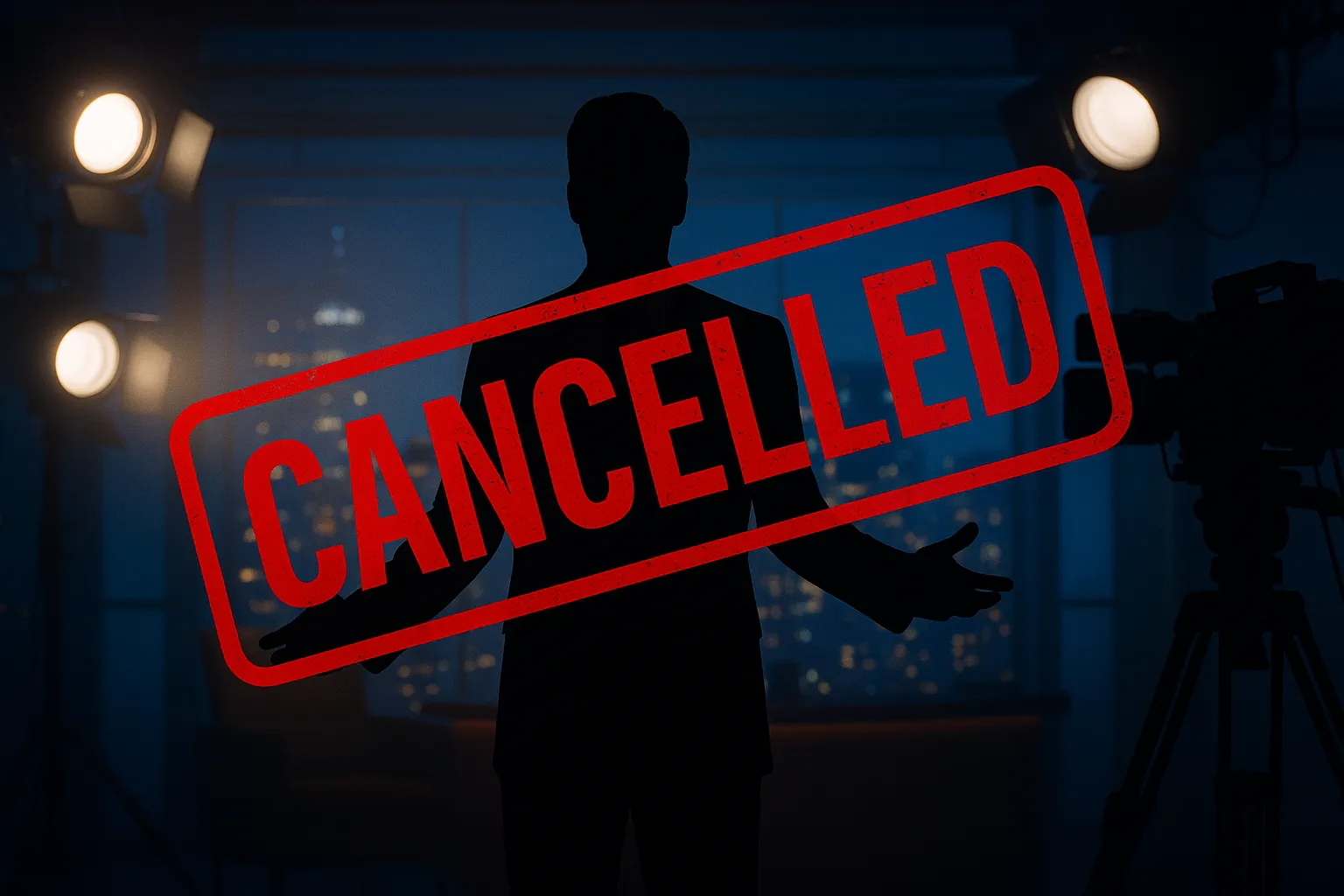Kimmel Suspended as Colbert Cancellation Fallout Continues

Media companies face mounting pressure to silence Trump critics as late-night landscape shifts dramatically.
ABC suspended Jimmy Kimmel today following his confrontation with conservative commentator Charlie Kirk, confirming suspicions that networks are systematically targeting Trump critics after Stephen Colbert’s shocking cancellation earlier this year.
The suspension represents the latest blow to late-night television’s political commentary, coming just months after CBS announced in July that “The Late Show with Stephen Colbert” would end in May 2026 after a 33-year run. Industry observers now see a clear pattern emerging as media companies navigate merger approvals under the Trump administration.
Financial Claims Meet Political Reality
CBS initially attributed Colbert’s cancellation to “purely financial” reasons, citing the “challenging backdrop in late night” television. The network emphasized the decision was “not related in any way to the show’s performance, content or other matters happening at Paramount”.
However, the timing raised immediate red flags. The cancellation announcement came just days after Colbert criticized CBS parent company Paramount for settling a $16 million lawsuit with President Trump over a “60 Minutes” interview. During his July 14 monologue, Colbert had called the settlement “a big fat bribe”.
The controversy deepened when reports revealed Colbert’s representatives learned of the potential cancellation around July 4, with the final decision made July 16. Colbert himself only learned the news the evening before making the public announcement on July 17.
Political Motivations Draw Senate Scrutiny
Democratic senators immediately questioned whether political considerations drove the cancellation. Senator Elizabeth Warren stated: “CBS canceled Colbert’s show just three days after Colbert called out CBS owner Paramount for its $16 million settlement with Trump - a deal that looks like bribery”.
Senator Adam Schiff, who appeared on Colbert’s show the night of the announcement, submitted a formal letter to the Federal Communications Commission asking about its potential role in the decision. The Writers Guild of America called for New York Attorney General Letitia James to investigate the circumstances.
The scrutiny intensified because Paramount was simultaneously pursuing an $8 billion merger with Skydance Media, requiring FCC approval under the Trump administration. The merger involves Skydance leader David Ellison, son of Trump ally Larry Ellison.
Emmy Win Highlights Industry Support
Despite the controversy, Colbert received strong industry backing when he won his first Emmy Award on September 15 for “The Late Show”. The entertainment community showed overwhelming support with a standing ovation during his acceptance speech.
“Sometimes, you only know how much you love something when you get a sense you might be losing it,” Colbert said during his acceptance speech, while thanking CBS for allowing him to be “part of the late-night tradition”.
Late-Night Format Under Siege
The cancellation represents a devastating blow to the late-night format, which has struggled against streaming services and fragmented audiences. “The Late Show” consistently ranked as the top-rated program in its time slot, averaging 2.4 million viewers and being the only late-night show to increase its audience this year.
NBC has already reduced “The Tonight Show Starring Jimmy Fallon” to four nights per week, while “Late Night With Seth Meyers” cut its live band. The industry faces declining advertising revenue as viewers increasingly consume content through social media clips rather than full episodes.
Broader Media Landscape Implications
Today’s Kimmel suspension confirms what industry analysts suspected after Colbert’s cancellation. Media companies appear willing to sacrifice prominent Trump critics to secure favorable treatment for corporate mergers and avoid regulatory scrutiny.
The pattern suggests a fundamental shift in how entertainment companies approach political content under the current administration. As one industry insider noted, networks now face impossible choices between editorial independence and corporate survival in an increasingly consolidated media landscape.
The developments mark a watershed moment for American television, where political comedy that once thrived during previous administrations now faces systematic elimination. With Colbert’s show ending in May 2026 and Kimmel now suspended, the future of political satire on broadcast television appears increasingly uncertain.
Categories
Autos and vehicles Beauty and fashion Business and finance Climate Entertainment Food and drink Games Health Hobbies and leisure Jobs and education Law and government Other Politics Science Shopping Sports Technology Travel and transportationRecent Posts
Tags
Archives
08/19/2025 (3) 08/20/2025 (40) 08/21/2025 (27) 08/22/2025 (22) 08/23/2025 (4) 08/24/2025 (21) 08/25/2025 (30) 08/26/2025 (24) 08/27/2025 (29) 08/28/2025 (16) 08/29/2025 (9) 08/30/2025 (13) 08/31/2025 (17) 09/01/2025 (167) 09/02/2025 (124) 09/03/2025 (149) 09/04/2025 (112) 09/05/2025 (72) 09/06/2025 (169) 09/07/2025 (162) 09/08/2025 (150) 09/09/2025 (176) 09/10/2025 (194) 09/11/2025 (194) 09/12/2025 (186) 09/13/2025 (207) 09/14/2025 (159) 09/15/2025 (175) 09/16/2025 (198) 09/17/2025 (196) 09/18/2025 (196) 09/19/2025 (207) 09/20/2025 (129) 09/21/2025 (4)